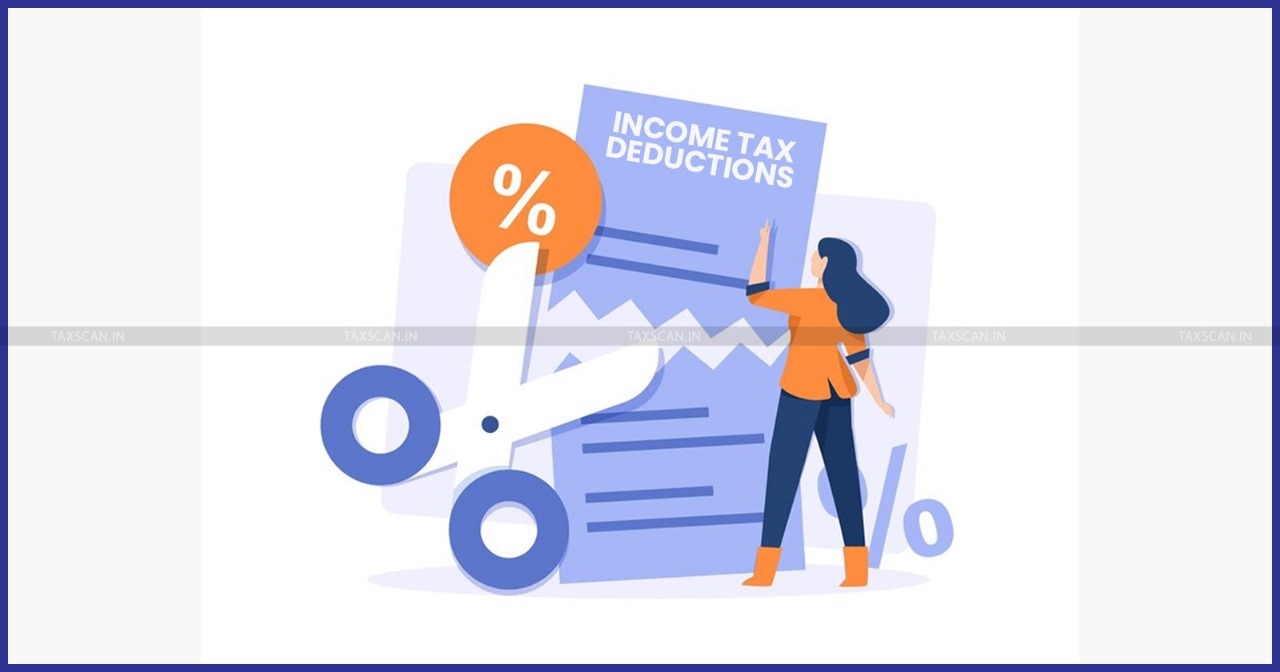No PAN Mandatory for Lower TDS under DTAA: Gujarat HC rules in favour of Adani Wilmar Ltd [Read Order]
The Tribunal has rightly affirmed the conclusion arrived at by CIT(Appeals) in deleting the tax demand relatable to difference between 20% and the actual tax rate on which tax was deducted by the respondent assessee in terms of the relevant DTAAS.
![No PAN Mandatory for Lower TDS under DTAA: Gujarat HC rules in favour of Adani Wilmar Ltd [Read Order] No PAN Mandatory for Lower TDS under DTAA: Gujarat HC rules in favour of Adani Wilmar Ltd [Read Order]](https://images.taxscan.in/h-upload/2025/07/01/2057691-pan-card-jpg.webp)
In a ruling in favour of Adani Wilmar Ltd, the Gujarat High Court has held that the Permanent Account Number (PAN) is not mandatory for lower Tax Deducted At Source (TDS) under the Double Tax Avoidance Agreement (DTAA). The bench affirmed the Tribunal order upholding CIT(Appeals) action in deleting the tax demand relatable to difference between 20% and the actual tax rate on which tax was deducted by the respondent assessee in terms of the relevant DTAAS.
The case revolved around Section 206AA ofthe Income Tax Act, which mandates a 20% tax deduction at source (TDS) if a foreign recipient fails to furnish a PAN. It would also be relevant to observe that even the charging section 4 as well as section 5 of the Act which deals with the principle of ascertainment of total income under the Act are also subordinate to the principle enshrined in section 90(2) as held by the Supreme Court in the case of Azadi Bachao Andolan and Others.
Want a deeper insight into the Income Tax Bill, 2025? Click here
However, the case of the Revenue is that the tax deduction at source was required to be made at 20% in the absence of furnishing of PAN by the recipient nonresidents, having regard to section 206AA of the Act. The court viewed that it would be quite incorrect to say that though the charging section 4 of the Act and section 5 of the Act dealing with ascertainment of total income are subordinate to the principle enshrined in section 90(2) of the Act but the provisions of Chapter XVII-B governing tax deduction at source are not subordinate to section 90(2) of the Act.
 Also Read:Income Tax Deduction u/s 80HHC Had to Be Given Without Reducing S. 80IB Deduction: Madras HC Follows SC Ruling [Read Order]
Also Read:Income Tax Deduction u/s 80HHC Had to Be Given Without Reducing S. 80IB Deduction: Madras HC Follows SC Ruling [Read Order]
Notably, section 206AA of the Act which is the centre of controversy before us is not a charging section but is a part of a procedural provisions dealing with collection and deduction of tax at source. The provisions of section 195 of the Act which casts a duty on the assessee to deduct tax at source on payments to a non-resident cannot be looked upon as a charging provision. In-fact, in the context of section 195 of the Act also, the Supreme Court in the case of CIT v. Eli Lily & Co., MANU/SC/0487/2009 : (2009) 312 ITR 225 (SC) observed that the provisions of tax withholding i.e. section 195 of the Act would apply only to sums which are otherwise chargeable to tax under the Act.
The CIT(A) correctly inferred that section 206AA of the Act does not override the provisions of section 90(2) of the Act and that in the impugned cases of payments made to nonresidents, assessee correctly applied the rate of tax prescribed under the DTAAs and not as per section 206AA of the Act because the provisions of the DTAAs was more beneficial.
How to Audit Public Charitable Trusts under the Income Tax Act Click Here
The division bench of Justice Bhargav D. Karia and Justice Pranav Trivedi has concluded that the CIT(A) in deleting the tax demand relatable to difference between 20% and the actual tax rate on which tax was deducted by the assessee in terms of the relevant DTAAs. As the respondent assessee has deducted the tax at source on payment made to non residents on account of royalty and/or fees for technical services at the rates prescribed in respective DTAAs between India and respective countries of non residents and such rate of tax being lower than rate of 20% as provided under section 206AA of the Act, CIT (Appeals) and the Tribunal have rightly arrived at concurrent findings to the effect that as per section 90(2) of the Act, the provisions of DTAA would override the provisions of the Domestic Act where the provisions of the DTAA are more beneficial to the assessee.
The Tribunal has rightly affirmed the conclusion arrived at by CIT(Appeals) in deleting the tax demand relatable to difference between 20% and the actual tax rate on which tax was deducted by the respondent assessee in terms of the relevant DTAAS.
The court dismissed ten appeals filed by the Commissioner of Income Tax (International Taxation and Transfer Pricing) challenging the Income Tax Appellate Tribunal (ITAT)'s ruling in favor of respondent.
Support our journalism by subscribing to Taxscanpremium. Follow us on Telegram for quick updates


